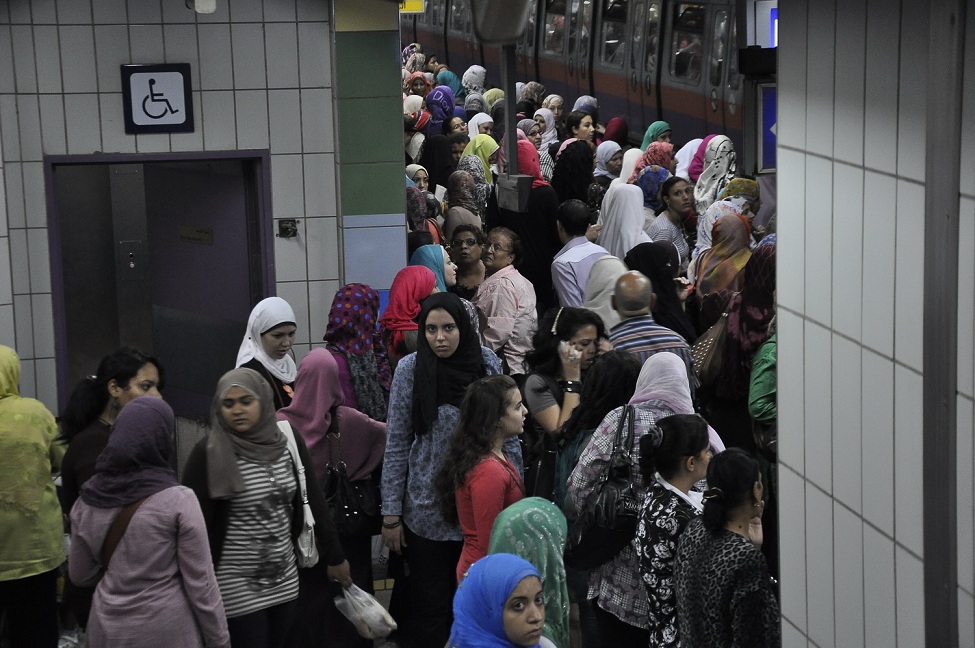By Tamim Elyan
ALEXANDRIA: Following the January 25 Revolution, Salafi groups became the subject of social and political debates as some accused them of taking advantage of the newfound freedom to voice their aspirations for a religious state.
They are often accused of inciting sectarian tension and their increased activity stirred controversy especially among liberal political streams.
Abdel Moneim Al-Shahat, a prominent Salafi scholar and the spokesperson for the Salafi movement in Egypt, sat with Daily News Egypt to explain the movement’s vision of its political and social role after the revolution and its views on a number of controversial issues.
DNE: How were Salafis treated by the ousted regime? And how was State Security involved in cracking down on the Salafi movement?
Al-Shahat: Egyptian security put a plan for every Islamic group; for Salafis, a group that is based on preaching and education, we were subject to regular and intermittent crackdowns. Every Salafi was subject to a surprise visit to State Security more than once every year just for growing his beard.
Those who were active members were subject to detention for weeks and sometimes years, while those who were involved in activities, no matter how peaceful they are, that State Security was unfamiliar with were subject to torture until all the information is gathered.
What is the difference between Salafis and other Islamic movements?
Salafi ideology is built on reforming society from its base by educating its members on faith and then integrating them in activities serving the society. We had differences with other Islamic movements since our establishment in the 1970s because we are strict in our commitment to pure practice.
We opposed the Takfeer Wa Al-Hijra [an extremist religious group] because they swerved from the authentic beliefs because they adopted changing the wrong by force … we are different from the Muslim Brotherhood in our views of the legitimacy of political participation.
Salafi movement stayed away from politics since their establishment and even refused to participate at demonstrations but now they are reconsidering the issue, what changed after the January 25 Revolution?
We considered that political participation within the old political scene involves validating an invalid situation and compromising; we want to apply complete Islamic ideologies although we would be satisfied with any positive developments in this matter not necessarily complete application.
We accepted participation in student unions and syndicate elections but we gave it up in favor of the MB for their political experience. However, we refused to participate in legislative elections because we refused to join a council that gives itself the right to issue legislations not based on Islamic Sharia, we would not compromise and we saw it ineffective.
We also saw that demonstrations are useless; they are either too peaceful or too confrontational and in both cases they lead to no results and sometimes un-Islamic slogans were imposed on us.
During the revolution, we found that the situation has changed after a large number of youth from different streams came together in peaceful demonstrations which didn’t adopt any slogans at all.
Now there is a great motivation for political participation since it is a phase of drafting a new constitution and there is a stream that wants it a liberal constitution while we want it a constitution that preserves the Islamic identity of the country.
We saw that all the reasons for refusing to participate are now nonexistent, since parliament cannot issue legislations that contradict with Islamic Sharia according to the second article of the constitution. There is also a certain level of freedom in the media that [encouraged our participation] although we were attacked severely … so we decided to participate in the political life but will keep the preaching nature of the movement.
Will you form political parties?
We expect those who carry the Salafi ideology with a political vision but aren’t involved in preaching activities to launch a political party or more and we will support them within our support to the Islamic stream in general whether the MB or independent candidates who adopt the Islamic ideology.
Al-Noor Party, whose founder is Emad Abdel Ghafour, a former member of the Salafi movement, is the closest to this vision.
Will you field candidates in the legislative elections?
We want to distance ourselves from managing the political process but we will give our members the freedom to support the best candidate.
What about the presidential elections?
We put three criteria that we require in the next president; to be a supporter of the idea of preserving the Islamic identity of the country, competency and fairness. All candidates now are possible candidates, we will wait until the candidacy door is closed and will decide whether to support a certain candidate or leave it up to the group members to decide who they will vote for based on our criteria.

